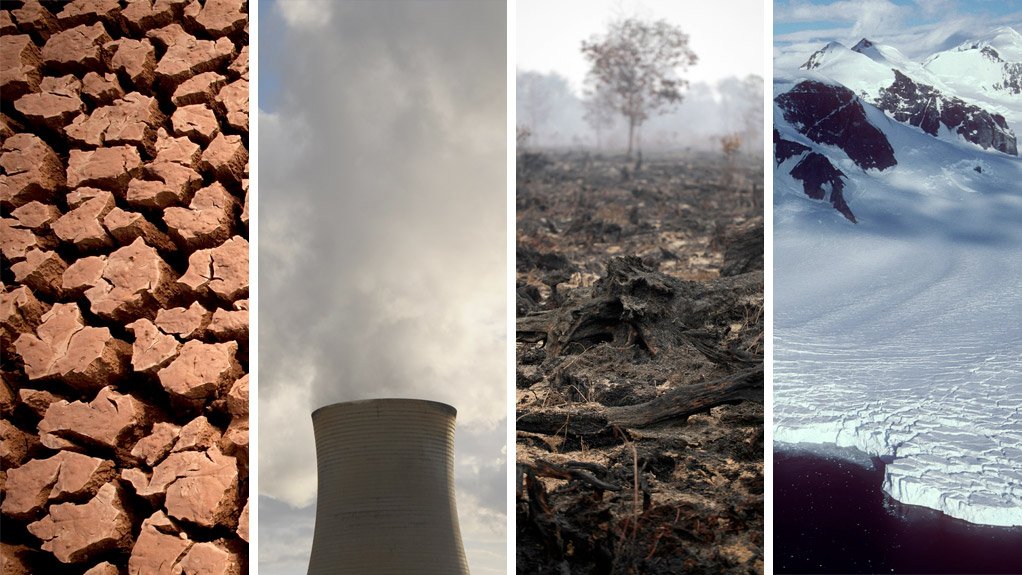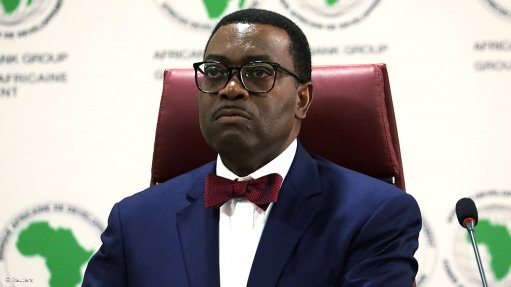Reducing scale of climate change a good investment – scientists
An international contingent of scientists on Friday called on world leaders to increase measures taken against climate change, stating that reducing its magnitude was also a good investment.
The group published its study a few days ahead of the United Nations Climate Change Week, taking place in New York next week. It will be attended by international governments, business, academic institutions and nonprofit organisations, to discuss the global impacts of climate change.
The group of scientists includes University of the Witwatersrand’s Professor Francois Engelbrecht, Climate Services Centre Germany director Professor Daniela Jacob, Professor Rachel Warren from the Tyndall Centre at the University of East Anglia in the UK, Dean of Science at the University of the West Indies Professor Michael Taylor and Professor Ove Hoegh-Guldberg from the Australian Research Council Centre for Excellence in Coral Reef Studies at the University of Queensland.
Their study shows that over the next few decades, the cost of actively reducing climate change is expected to be much less than the cost of the damage inflicted by it on people, infrastructure and ecosystems.
They warn that almost every aspect of the planet’s environment and ecology is undergoing changes in response to climate change, some of which will be profound, if not catastrophic, in the future.
Hoegh-Guldberg said the case for investment to reduce climate change was even more compelling given the wealth of evidence that the impacts of climate change were happening faster and more extensively than projected, even just a few years ago.
“This makes the case for rapidly reducing greenhouse gas emissions even more compelling and urgent. We have underestimated the sensitivity of natural and human systems to climate change, and the speed at which these changes are happening,” said Hoegh-Guldberg.
He reiterated the importance of 2020 in terms of climate action and the opportunity to strengthen emission reduction pledges in line with the Paris Agreement of 2015.
“Current emission reduction commitments are inadequate and risk throwing many nations into chaos and harm, with a particular vulnerability of poor peoples. To avoid this, we must accelerate action and tighten emission reduction targets so that they fall in line with the Paris Agreement. As we show, this is much less costly than suffering the impacts of 2 °C or more of climate change,” Hoegh-Guldberg said.
Engelbrecht said developing countries would be most affected by the impacts of climate change without strong climate change mitigation. The Southern African region may be regarded as a climate change hot-spot, he said.
“The region has been warming drastically over the last five decades, at about twice the global rate of warming. Southern Africa is likely to become generally drier under low mitigation climate change futures,” he predicted.
Taylor said dealing with climate change was not an academic issue but rather a matter of life and death for everybody.
If global warming was restricted to less than 1.5 °C above pre-industrial levels, the risks associated with droughts and heat-waves could be reduced.
Jacob added that the forecasting and responding to weather-related phenomena was getting harder.
Meanwhile, addressing the risks relating to food, crops, forests, biodiversity and other systems, Warren said the scientific community had quantified them in the hope that policy makers would see the benefits of avoiding them.
“If such policy is not implemented, we will continue on the current upward trajectory of burning fossil fuels and continuing deforestation, which will expand the already large-scale degradation of ecosystems. To be honest, the overall picture is very grim unless we act,” said Warren.
Comments
Press Office
Announcements
What's On
Subscribe to improve your user experience...
Option 1 (equivalent of R125 a month):
Receive a weekly copy of Creamer Media's Engineering News & Mining Weekly magazine
(print copy for those in South Africa and e-magazine for those outside of South Africa)
Receive daily email newsletters
Access to full search results
Access archive of magazine back copies
Access to Projects in Progress
Access to ONE Research Report of your choice in PDF format
Option 2 (equivalent of R375 a month):
All benefits from Option 1
PLUS
Access to Creamer Media's Research Channel Africa for ALL Research Reports, in PDF format, on various industrial and mining sectors
including Electricity; Water; Energy Transition; Hydrogen; Roads, Rail and Ports; Coal; Gold; Platinum; Battery Metals; etc.
Already a subscriber?
Forgotten your password?
Receive weekly copy of Creamer Media's Engineering News & Mining Weekly magazine (print copy for those in South Africa and e-magazine for those outside of South Africa)
➕
Recieve daily email newsletters
➕
Access to full search results
➕
Access archive of magazine back copies
➕
Access to Projects in Progress
➕
Access to ONE Research Report of your choice in PDF format
RESEARCH CHANNEL AFRICA
R4500 (equivalent of R375 a month)
SUBSCRIBEAll benefits from Option 1
➕
Access to Creamer Media's Research Channel Africa for ALL Research Reports on various industrial and mining sectors, in PDF format, including on:
Electricity
➕
Water
➕
Energy Transition
➕
Hydrogen
➕
Roads, Rail and Ports
➕
Coal
➕
Gold
➕
Platinum
➕
Battery Metals
➕
etc.
Receive all benefits from Option 1 or Option 2 delivered to numerous people at your company
➕
Multiple User names and Passwords for simultaneous log-ins
➕
Intranet integration access to all in your organisation





















